Classic English Christmas Trifle isn’t often made outside of the British Isles, but maybe that should change! This recipe is simple and elegant and makes for a perfect Christmas day dessert.
Really want to impress your guests this Christmas? Why not try this Homemade Amaretto recipe that you can then use in your trifle and also serve in a cocktail? Also, don’t forget to learn How To Make A Perfect Whipped Cream to use in your trifle!
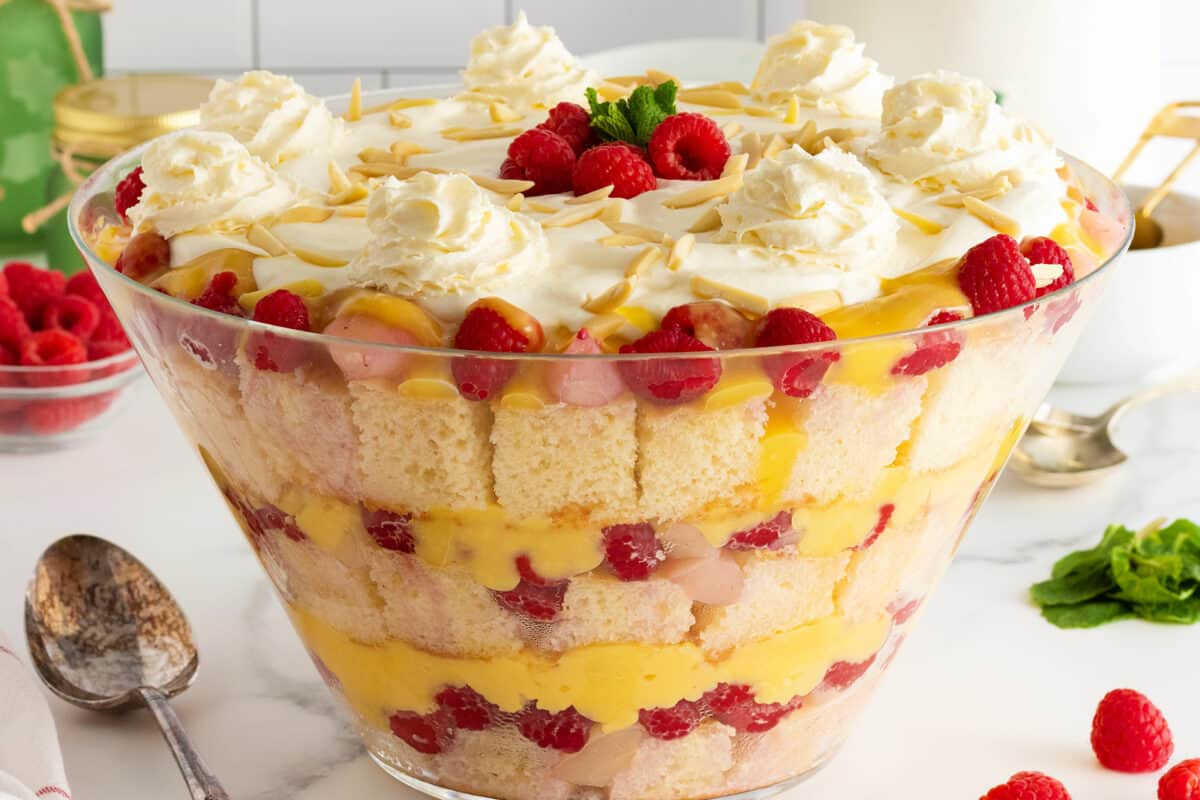
English Christmas Trifle
English trifle is one of those things that most people think of as being only relegated to fancy meals across the pond in the UK. However, not only is an English trifle surprisingly easy to make, it looks amazing when presented at a big dinner, which makes it perfect for a big Christmas celebration.
Feel free to play around with the fruits and even the layering depending on your preferences because no matter what you do, a big English Christmas trifle is sure to impress.
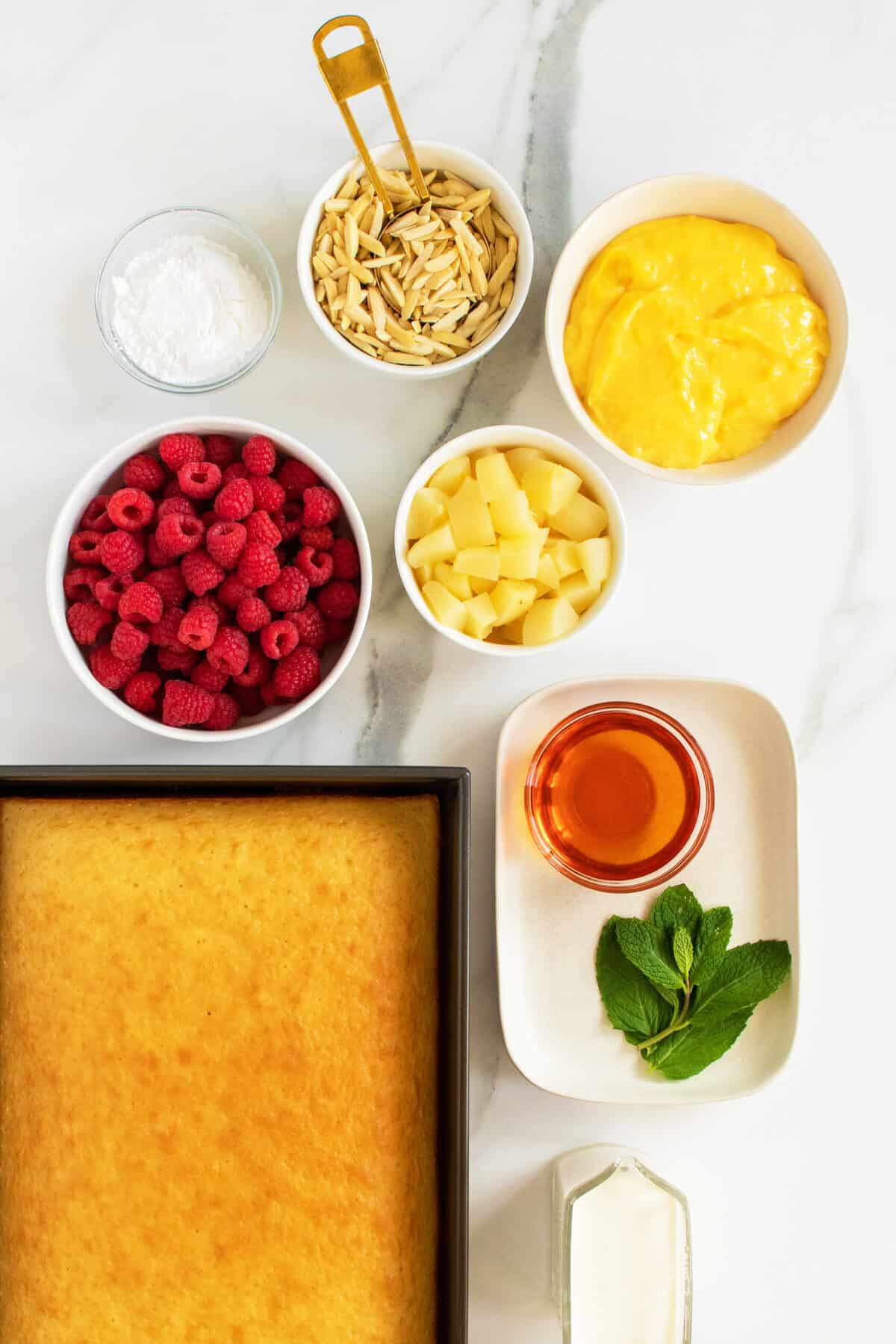
Why Should You Use White Cake In This Recipe?
Traditional English Christmas trifle usually contains either Lady Fingers or chopped-up Madeira cake as the cake base, but white cake is the easiest cake to get a hold of, especially pre-prepared, so it makes this whole recipe a lot easier. Plus, white cake has a more neutral and balanced flavor, allowing all of the other ingredients to shine through without the cake stealing too much of the show.
However, if you want to stick to tradition, feel free to use the classic Madeira cake still; it might be harder to find, but it does have a certain flavor of its own that is worth trying out.
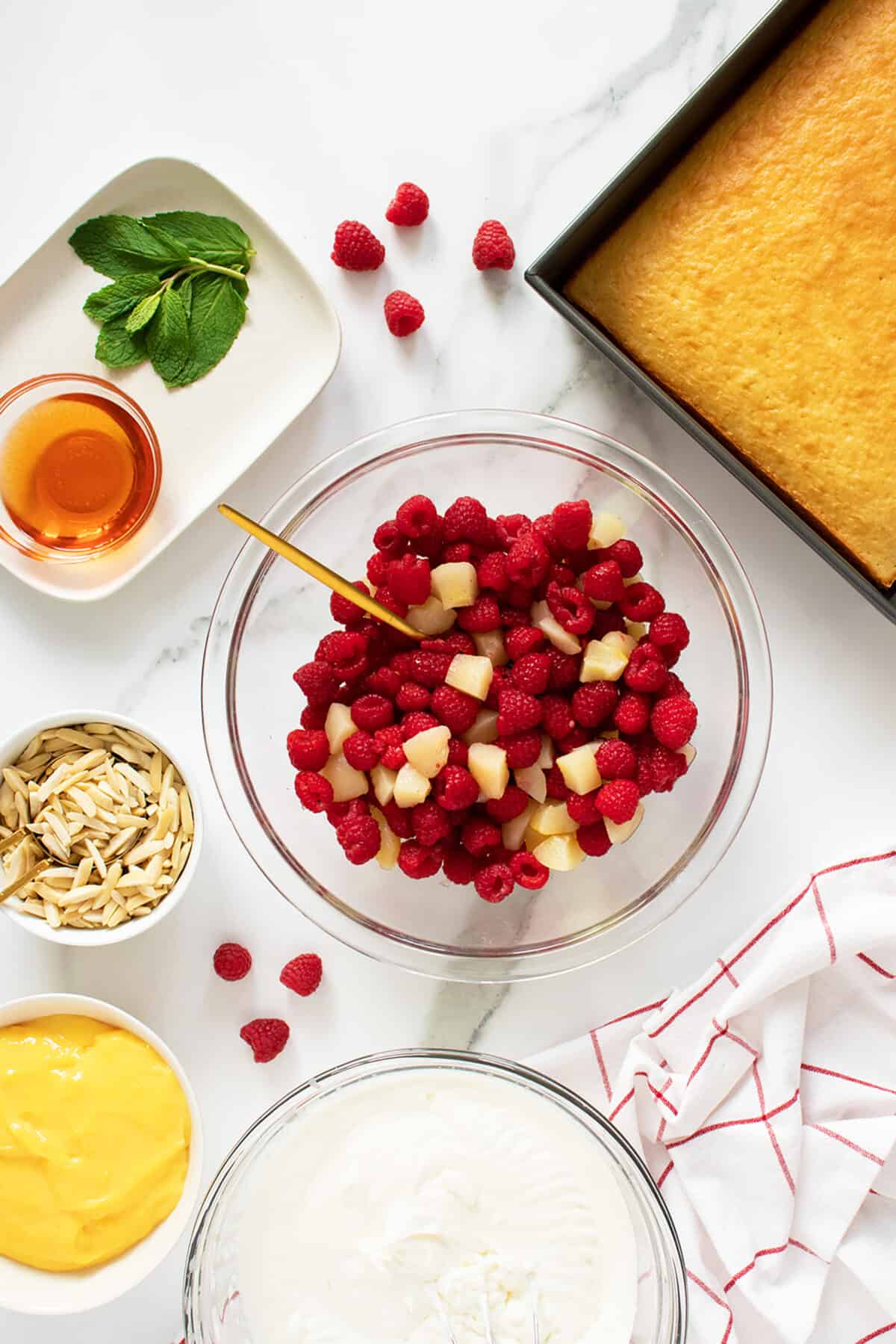
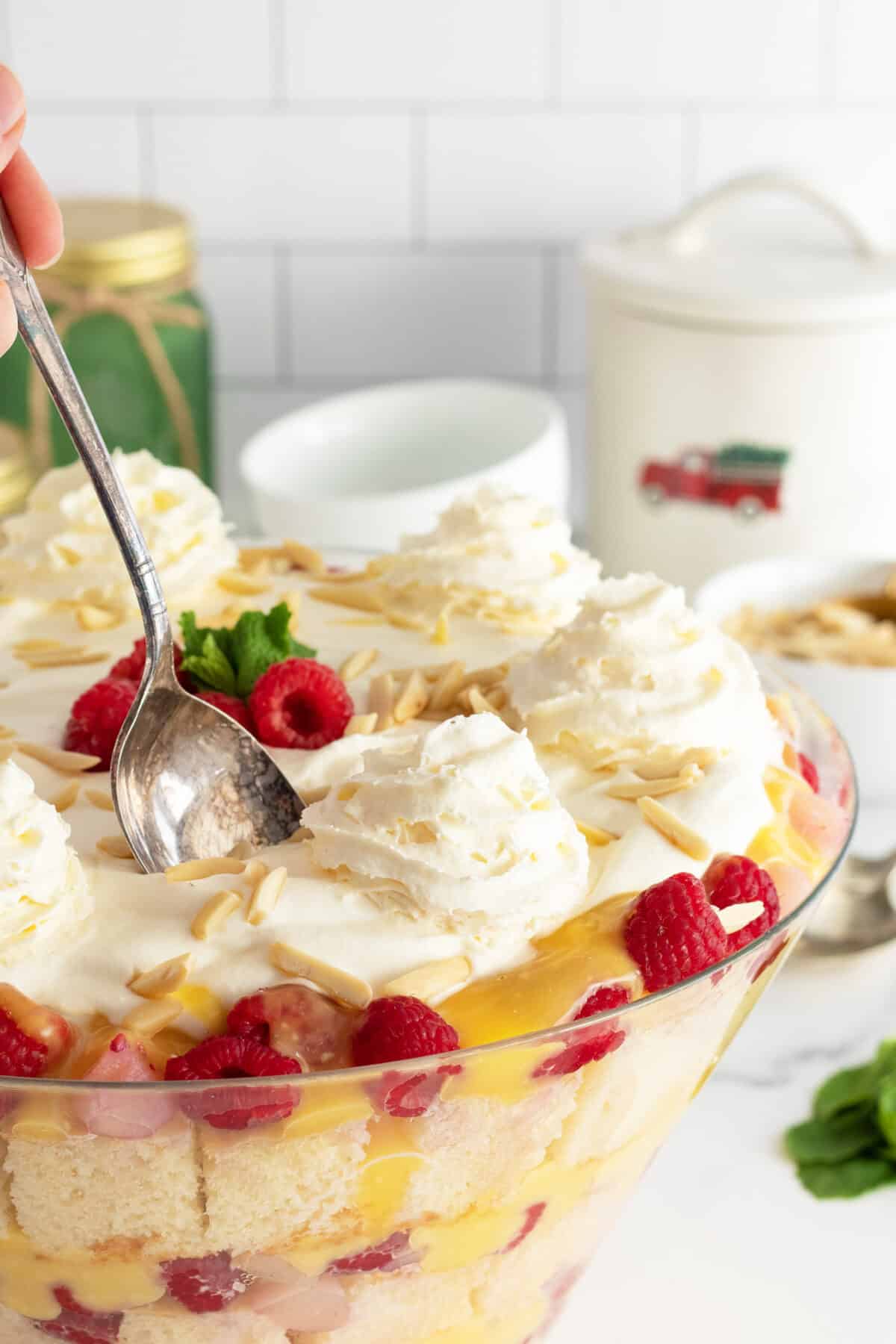
Some Different Layering Methods
While this recipe does have a pretty prescriptive method of assembly, creating each layer individually in a particular way, there is always the option to mix it up a little bit and do something different.
While some people will follow this recipe with cake at the bottom, you could instead start with a jelly fruit layer instead.
There isn’t a lot of difference between the different options – it is really about what kind of final texture you want from your trifle. With the cake in the middle layer, it is likely going to get a bit soggier, whereas the cake is on the bottom (or even the top!) will result in a slightly crispier and crumblier texture.
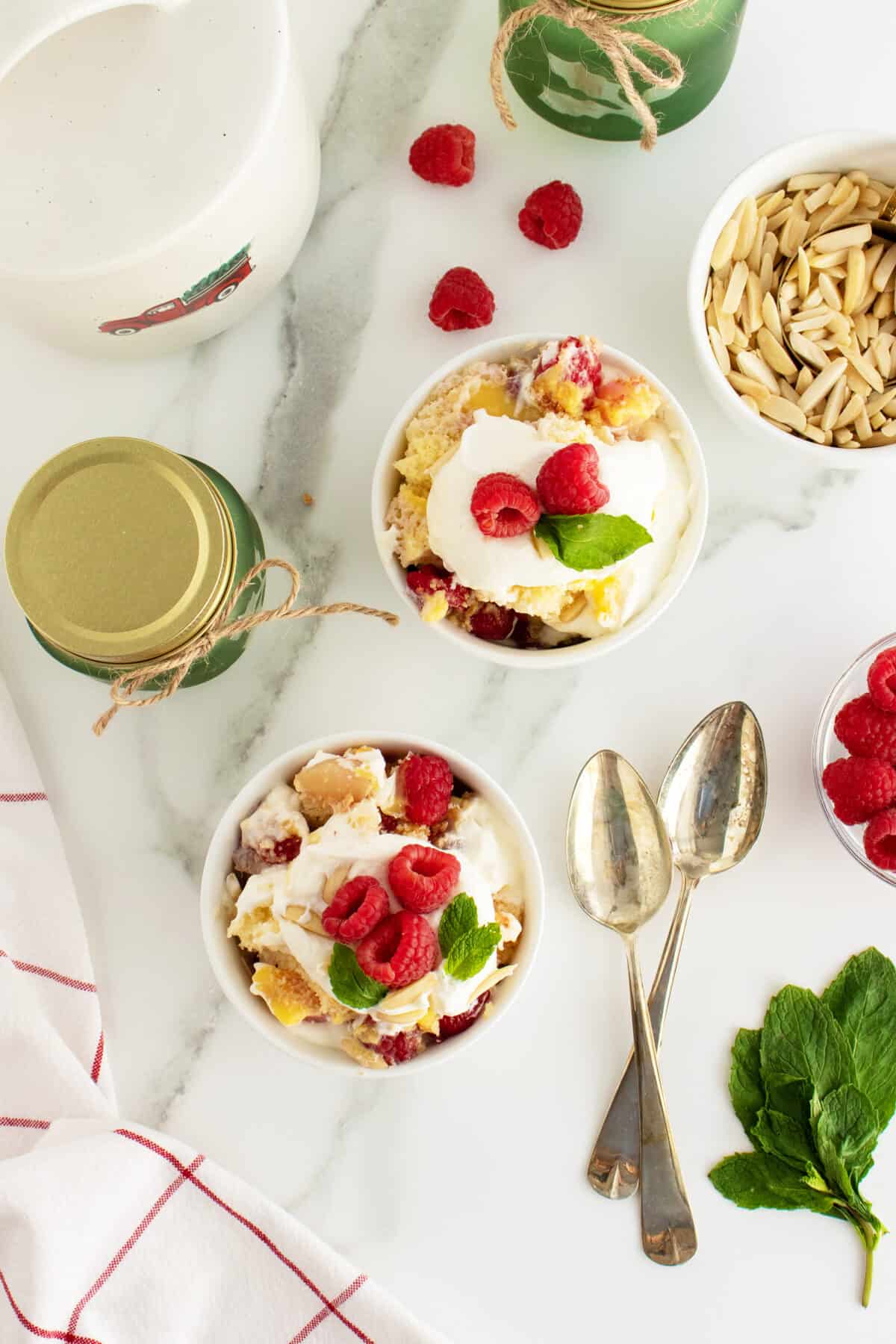
Do You Have To Use Pears And Raspberries?
This recipe calls for the use of both canned pears and some fresh raspberries to provide the fruit for this trifle, but there are other options for fruits you could choose from as well.
- Strawberries
Strawberries are actually sometimes considered the more traditional option for making a trifle, so long as you quarter them into attractive little strawberry triangles.
- Blueberries
Blueberries are a great way not only to add some extra antioxidants to your diet but they are also a great replacement for raspberries if you don’t have any on hand.
Even better, try to get some fresh blueberries, as they are a hundred times better than anything frozen.
- Bananas
Bananas are definitely a more unorthodox choice for this kind of recipe, but if you are a big banana lover, they are definitely worth trying.
Though they won’t break apart as much as softer fruits, bananas can give a nice rich earthiness to the trifle that other fruits simply can’t compete with.
Looking for more traditional Christmas Dessert recipes? Try these out:
• Pineapple Upside Down Bread Pudding
• Grandma Marion’s Christmas Pudding
• Salted Caramel Gingerbread in a Mug
Happy Cooking
Love,
Karlynn

Pin This Recipe To Your Dessert Recipes Board and Remember to FOLLOW ME ON PINTEREST!
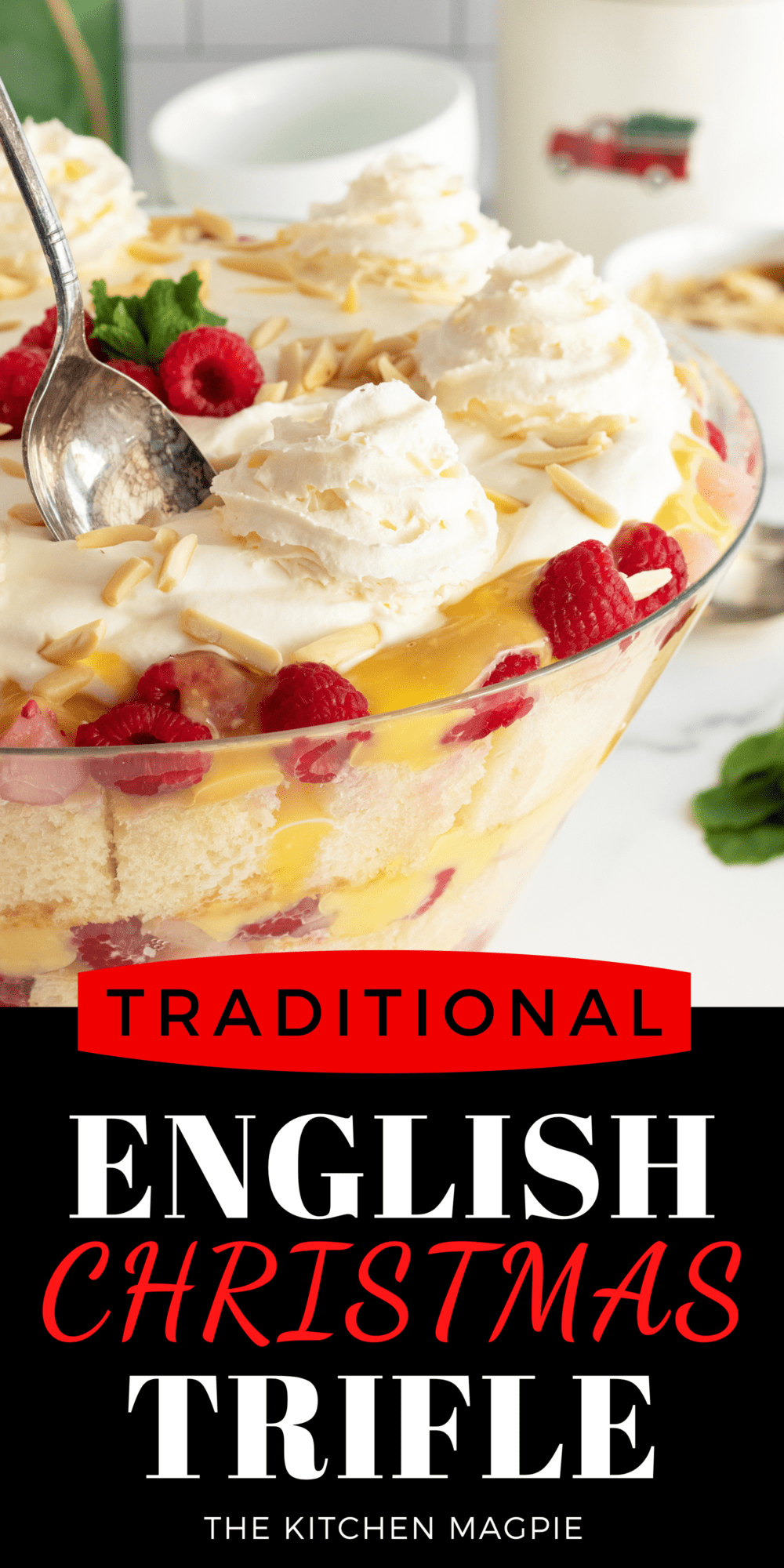
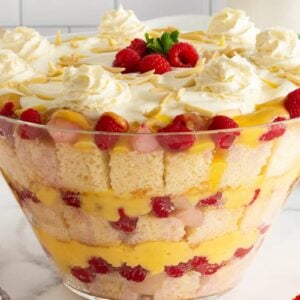
English Christmas Trifle
Ingredients
- 3 cups Birds Custard (prepared)
- 1 prepared white cake (baked in a 9×13 pan)
- 1/3 cup amaretto
- 1 pears canned (drained and diced)
- 4 cups fresh raspberries
- 1/4 cup confectioner's sugar
- 2 cups whipping cream
- 1/4 cup slivered almonds (for garnish)
- fresh raspberries and mint leaves for garnish
Instructions
- Prepare the Birds Custard as per the directions and set aside.
- Prepare the white cake mix in a 9×13 baking pan as per the directions on the box.
- In a medium bowl, beat 2 cups heavy cream with the confectioner's sugar until stiff peaks form. Set aside.
- In a separate mixing bowl toss the diced pears and raspberries with 2 tablespoons Amaretto, stirring to bruise the berries slightly.
- To assemble the trifle cut the cake into 1/2-inch thick slices to fit tightly into the bottom of a trifle bowl (or a 1 1/2-quart decorative glass bowl).
- Drizzle or sprinkle the cake layer with Amaretto.
- Layer 1/3 of the pears and raspberries over the top of the cake, followed by 1/3 of the custard.
- Repeat the process, creating a total of three layers with the remaining ingredients.
- Spread whipped cream on top, then pipe rosettes of whipped cream on top.
- Garnish with raspberries, slivered almonds and mint leaves.
- Refrigerate covered until ready to serve.
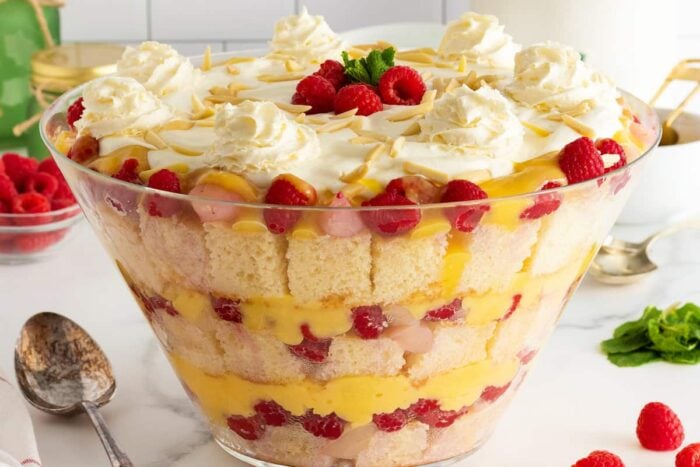








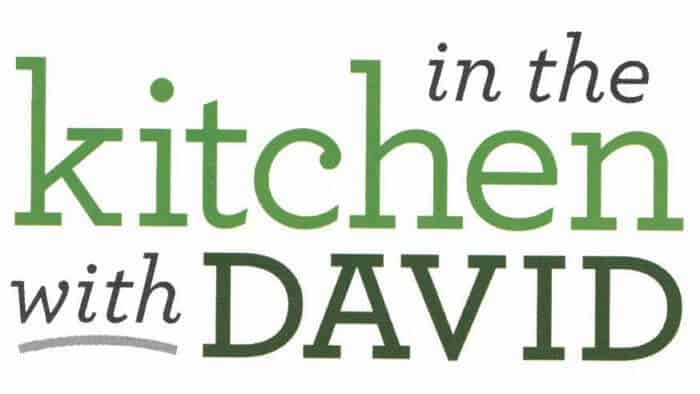





Pete Xander says
Okay, I stiffed you a star. My mom made trifles for decades before it was even heard of, much less commonplace as it is now. In making one’s own custard, though, you left out a vital insurance factor — yes, don’t overcook the custard, but what is the temperature at which the eggs will curdle? THIS fact comes from making a custard homemade ice cream recipe, but holds true to all egg-thickened custard: The temperature should be kept under 180 degrees F. Know that if it does exceed that, the temperature will continue to rise 4-5 degrees after it’s taken off the heat before it breaks and curdles.
Use a candy thermometer? NO! The range of temperatures on a candy thermometer is too difficult to read. I long have used a better one — a MEAT thermometer. For lower temperature cooking where a few degrees makes the difference, a meat thermometer is far more accurate, and EVERYONE has a meat thermometer.
And since I live at 6,000 in the San Bernardino Mountains of southern California — and a biologist with a broad science background — I know that water boils at 212 degrees at sea level. For every 500 feet of elevation, you have to know the boiling point will be 1 degree lower. So at 6,000 feet, the boiling point will happen at 200 degrees, or 2 degrees F for every 1,000 feet in elevation gain.
There — science lesson over. Time to get cookin’!
Mr. Kitchen Magpie says
Wow! Thanks for that, quite helpful. I appreciate you taking the time to share!!